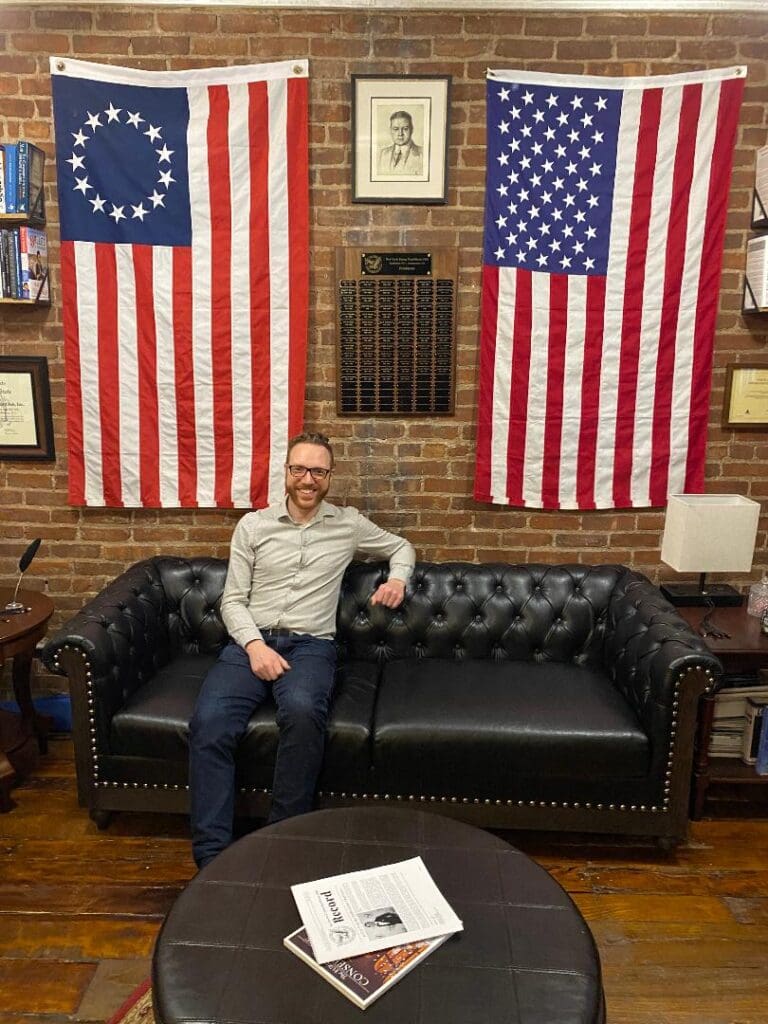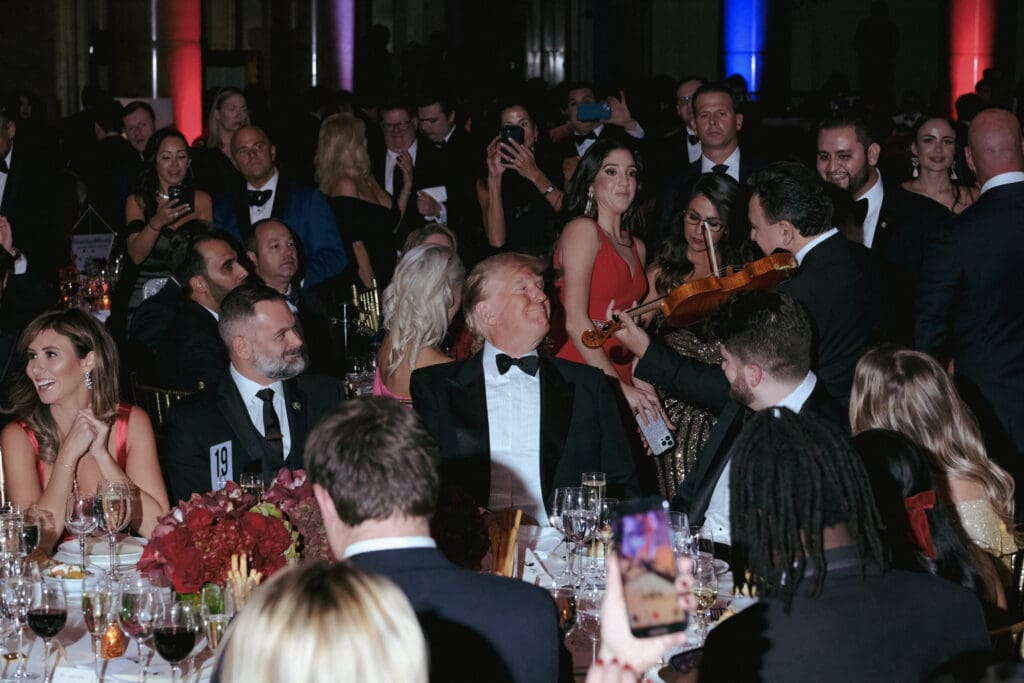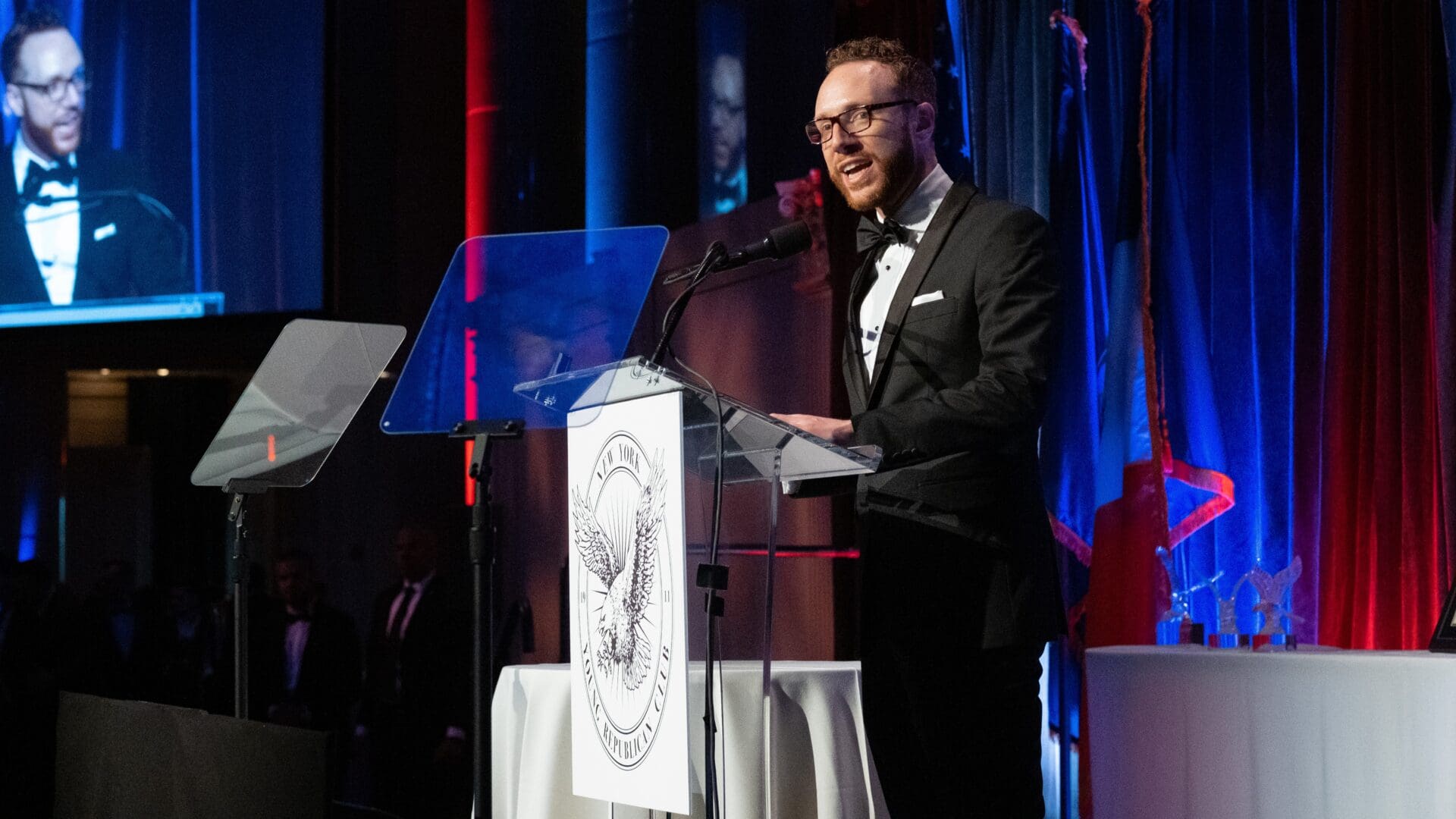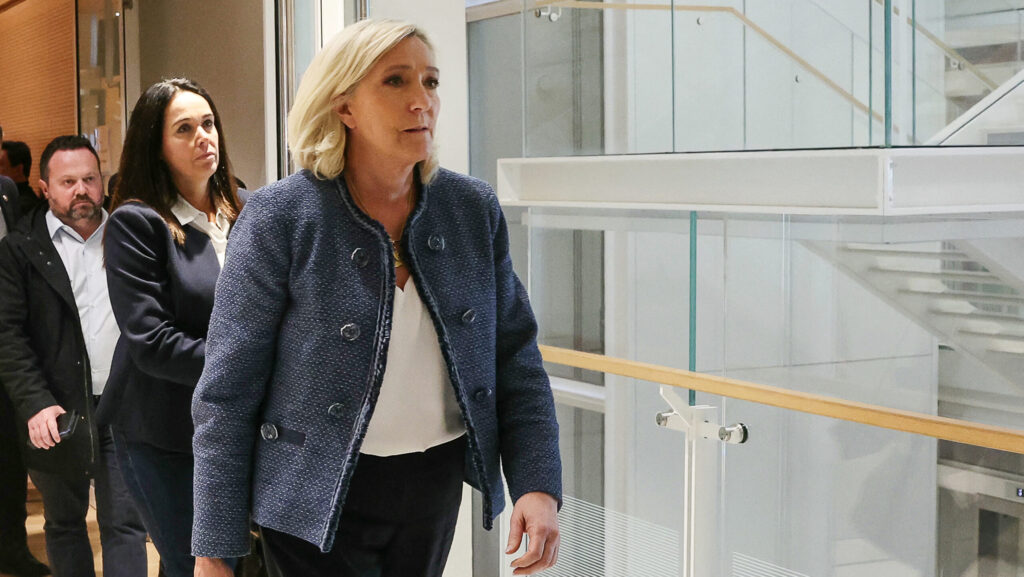I met Nathan Berger for the first time at the first CPAC Hungary in 2022. When we subsequently moved from Hungary to New Jersey (NJ), we coincidentally settled in Denville, the town where he grew up. The next time we met was at a New York Young Republican Club (NYYRC) event featuring Hungarian Minister of Foreign Affairs and Trade Péter Szijjártó as a guest speaker, where Nathan agreed to grant us an interview.
***
Let’s start on a personal note. How do you see Denville retrospectively? Has it changed much since your childhood?
When I was born, my parents lived in Hoboken, NJ, which is right across the Hudson River from NYC, but my mother wanted to raise her children in an environment that had grass, fresh air and clean water, so they picked Denville which was a great place to grow up. I do not yet have children, so I enjoy living in NYC. Denville seems to be doing well. I knew Mayor Tom Andes as a child, as I went to school with his children. I think he has done a great job handling the town. It is very difficult leading a largely conservative town in a state that is ever more controlled by Democrats, but he has done a great job protecting the town, making sure that its residents are well represented, and that it does not change too quickly. There are more housing communities nowadays, but, overall, it is still a great place, especially to raise children.
NYYRC is one of the most prominent Republican clubs in the US. Why does it stand out?
The NYYRC is the oldest and largest young Republican club in the country. It was founded in 1911, and our predecessor organizations date back to the 1850s. For instance, the Young Men’s Republican Union hosted Abraham Lincoln in New York during his presidential campaign. He made a famous speech at an architecture and engineering school in lower Manhattan, called the Cooper Union Speech, which many people consider to really energize his presidential candidacy. Our club used to have thousands of members back in the 1950s. It was quite involved during the 1956 Hungarian revolution, hosting fundraising for Hungarian refugees at the time. Also, our club has always been prominent. On the walls, you can see pictures of famous club members. For example, Thomas Dewey was the governor of NY state and ran for president twice in the 40s and just barely lost to Harry Truman in 1948. When we took over this club five years ago, it had only a few dozen members, and, since then, we have grown it to roughly 1,200 members.
Do you think President Trump accepted your invitation for the 2023 Annual Gala because of your long and prominent history or due to your achievements over the past five years?
I think he accepted it because of these past five years primarily. He saw that we have been a force for the MAGA-movement. Club president Gavin Max and other members of our leadership have been heavily involved, and President Trump has seen the results. We came out with a very strong endorsement before he announced his candidacy in 2023 for the 2024 election that was heavily criticized in the media. There’s even an The Atlantic article about it. We used some hyperbolic language, perhaps, which threw people into an uproar. But at the end of the day, we’ve been strong and vocal supporters of President Trump in his hometown. He was born in Queens and eventually moved into Manhattan. He is definitely a NYC guy, his entire career up until politics was in NYC and he is intertwined with NYC politics in a very deep way. So, I think he used the opportunity to speak at this landmark venue and to come home in a friendly setting.

NYYRC seems to have flourishing collaboration with Hungarian conservative personalities and organizations (for instance, at the recent Annual Gala featuring Miklós Szánthó and the Center of Fundamental Rights; Balázs Orbán, the political director of PM Viktor Orbán, European MP Kinga Gál and Minister of Foreign Affairs and Trade Péter Szijjártó were all your guest speakers). There is a vintage poster of Fidesz in your club. Why do you nurture these connections?
This vintage Fidesz election poster signed by PM Orbán in 2023 was a gift to our club from the Foundation for Civic Hungary. Hungary is a strong ally of the US. It is a strong outline of the US in the sense that it stands with the American people’s interests at a time where the American government doesn’t necessarily stand with them. Hungary is a bastion of right wing thought and expression in Europe today standing as a bulwark against Brussels and Washington and the highly problematic leftist ideas coming from the various NGOs. And I would also say that the Hungarians are receptive to our outreach. We couldn’t have a relationship with the Center for Fundamental Rights or the Foundation for a Civic Hungary unless those groups were looking for a reciprocal relationship. We respect the fact that they are looking for that. We want to build relationships not only within the US, but also internationally. We see the opportunity to develop those with Hungarian institutions and we are happy to take it. We have developed relationships with parties and political institutions in other European countries as well. The difference is that in Hungary the right wing has been in control of the government for a significant period of time.
The US seems to be a powerful global giant, while Hungary is a tiny, landlocked country in East–Central Europe. Yet there is growing evidence that Hungarian conservatives have the ability to influence the American public opinion, with three CPACs in Hungary, PM Orbán speaking at the 2022 CPAC, Tucker Carson’s visits to Hungary, President Trump’s comments on Hungary, his meetings with PM Orbán. What do you think about these developments?
The left has been very good over the past 150–200 years at developing transnational relationships that they are able to leverage for change. The Bolshevik revolution couldn’t have happened without these international connections that were centered around tirelessly interacting and sharing ideas, thoughts and strategies, and working together to develop relationships. We think that people on the right should be doing the same. The way PM Orbán has redefined Hungarian identity and sought to maintain, develop and foster relationships with Hungarians who were dispossessed of their homeland in the Treaty of Trianon is something I personally have tremendous respect for. There is a lot that we can learn about how to foster community, how to engage in nativist policies that put local families first and corporate interests perhaps second to making sure that people have the kinds of rights that they deserve as members of a nation. And that goes both for Hungary and for other countries where we see interesting strategies applied. Every country should be looking out for its citizens as its highest priority beyond anything else. We don’t think that there’s a contradiction between being ‘America first’ and building relationships with these countries and nations because ‘being first’ doesn’t mean that they should be hurting other country’s citizens or interests. Each country should be looking for opportunities for mutual collaboration that give everyone an opportunity to grow and improve their standard of living, their economic prosperity and the opportunity to pursue the kinds of lives they choose.
Do you think that the US (and Western Europe) can learn from Hungary (and East-Central Europe) also in terms of fighting against the various neo-Marxist, neo-communist ideologies, being much more aware of its perils?
Yes, I certainly think there is a lot to learn also in this respect. We know that the lived experience of Hungarians through the second half of the 20th century is one that is very different from the lived experience of Americans contemporaneously. Hungarians understand what it means to have communist forces in charge, what it means to have this sort of Marxist-Leninist ideology forced down your throat as well as its implications. Americans in certain circles are still enamored of these ideas. They haven’t seen how bad things can be. Every American should have watched PM Orbán’s first major public speech in 1989, because he really was carrying the message of a generation that had seen just how bad things could be. Americans never had that exposure, and Western Europe didn’t either. Germany had it to a certain extent, post World War I, in places like Bavaria. There’s still an appeal of certain leftist ideas because people don’t understand how bad the implications can be. When we look at American universities and the sort of leftist brainwashing that is taking place there, it’s very upsetting. We look at the American media, it’s monolithic in its perspective. In Hungary both left-wing and right-wing media have been flourishing over the past decade; that is something that Hungarians should be very proud of. American leftists and Western Europeans criticize Hungary for its media environment, but, in my view, these criticisms are widely unfounded. Why would foreign interests, by definition, be better than allowing Hungarians to control their media? So, there is a tremendous benefit to looking at what works in these other places, and what dangers people should become attuned to.
According to a The Nation article, there is division amongst American conservatives. Is that so in your opinion, and what minimum values could be agreed upon to make a united front possible?
If you look at the early history of American conservatism, it was never monolithic in its perspective. But this is not an issue, just a situation to be handled. I think that there are a lot of common values that Americans recognize are important for us to embrace today, more than ever before. General defense of our territory and borders is critically important. If we look at economic prosperity, there is certainly a divide between the neoconservative mentality, which is very much corporate interest driven and the people who say we should make people be prosperous and let them live their lives. Not through a Marxist-socialist perspective, but just oriented around giving people prosperity. When we look at some of the social issues, I think there is a broad consensus that even if some people are supportive of things like gay marriage, most of them are willing to say that the whole LGBTQ community is a very small segment of society and indoctrination in schools, universities and in the corporate world are not good for the country as a whole. It is not healthy for society to be so fixated on these things. The importance of family and family policies is one where there is perhaps a divide in terms of approach from a conservative angle. Our club is very supportive of nativist policies, for example the permanent tax advantages or home support initiatives implemented in Hungary, or the ways the government wants to make sure that people can work if they want to work, and have families if they want to. If you look at the history of the US economically, women entering the workforce in bulk has been devastating to individual incomes, so it is not possible for a regular American family today to survive off on a single income source, but only for some exceptions or with very significant sacrifices. Policies that support families is an area that can bring conservatives together.

What about other values such as religion or the protection of life? Both seem to cause some division within conservatives but could also be motivating to them. What do you think?
Religion and its role in the public sphere are obviously subject to critical debate today in the US. We’ve never had a concept like in France where there’s been a total separation of church and state. Making sure that people have their religious rights, and those are protected at a macro level is very much part of the discourse. There are efforts to overturn certain judicial decisions around prayer in schools. We see religious rights under attack constantly by the LGBTQ people. The most famous examples are the bakeries who do not want to prepare a cake for a gay wedding; they do not want to put their artistic intent into creating something that they find morally reprehensible. It is important to have mutual respect among all members of societies. I am not referring to every gay person, but I think the activists who are so intent on pushing their agenda ultimately hurt others and their cause as well. This is problematic and motivating to conservatives as well. The pro-life situation is also very interesting right now since the 1973 Roe v. Wade and some of the subsequent statutory and judicial decisions were overturned in 2022. Most legal scholars, even left-wing ones, consider the original case on abortion a bad Supreme Court decision, setting aside any moral judgment on it. Just on a purely legal level, it relied on a so-called substantive due process in a very fraught way. That said, it was very much a rallying cry for conservatives for the past 50 years. Now left-wing people are using the absence of it in a similar way: they will put a ballot proposition about protecting abortion rights in states where abortion is legal, because they know, this way will get more Democrat voters out to the polls. It is a problem with no real and clear-cut solution to it. There is certainly a division within conservatives on this topic: there are people who are 100 per cent pro-life under all circumstances and there are those who are in favor of pro-life concepts on a less absolute scale, but I think this is also a motivating factor on the conservative level to the same extent that it is now on the other side. We have to figure out how to strike the right balance of supporting pro-life policies, but also not alienating voters and not allowing our pro-life policies to be used by the Democrats to motivate their turnout, which will only end up harming our interests. We can all picture the utopia that we like to live in, but we have to be pragmatic about what we can achieve. We have an expression for that: ‘Don’t cut off your nose to spite your face’.
Let’s also finish on a more personal note. You mentioned that you have read about Hungarians in the US on Hungarian Conservative. Are you in personal contact with them as well?
I follow the articles on Hungarian Conservative online and read many of your articles, too. I clearly remember the one about the Hungarian priest in NY who participated in the 1956 Hungarian revolution. I also read about the Hungarian scouts since I was a boy scout a long time ago for a few years, but wasn’t aware of the Hungarian Scouting Association in Exteris established by immigrants in the 1950s, having a well-developed program, or that they returned to Hungary after the fall of communism, and also have a very important role to keep, foster and pass onto Hungarian heritage, in addition to scouting skills. I found all these fascinating. I’m familiar with the fact that the Hungarian Consulate and the Liszt Institute exist in New York, I’ve been pleased to attend several of their events, like the premiere of the movie Semmelweis. I probably know more members of the Hungarian diplomatic corps than of the ‘general’ Hungarian community, but it’s great to see that there’s a strong community that does perpetuate its language and cultural traditions, dances, songs, literature and gastronomy—all of which make for a distinctive identity—and make sure that are transmitted to their children. Hungary is such a unique country; making sure that these people remember their roots is very important.








